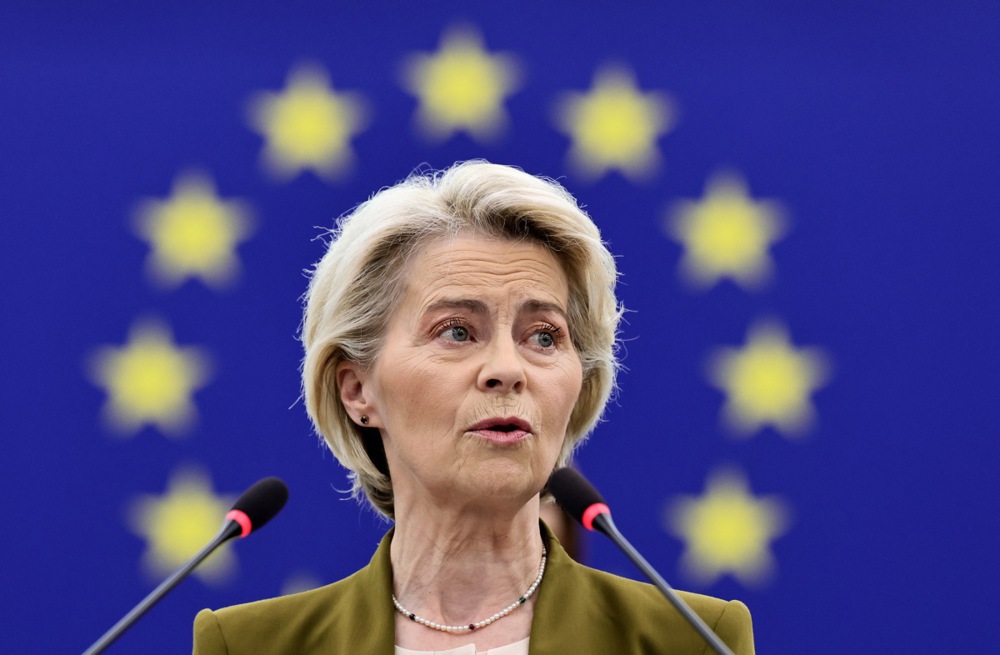Sports watchers of all stripes have encountered games where it seems a team just wants to lose. They run baffling plays, have poor clock management, or make other easily avoidable mistakes. In these moments, a cry will rise up from fans of whichever team is being so foolhardy: “What are we even doing here?”
This cry came to mind when the news broke that the Ursula von der Leyen Commission will expand the Erasmus student programme to North Africa and the Middle East.
The Erasmus programme was developed in the 1980s by a woman named Sofia Corradi, who sought to make it easier for European students to have their degrees and credits recognised around the continent. Corradi’s dream, launched in 1987 by the precursor to the EU – the European Economic Community – has resulted in 16 million Europeans travelling to other European countries. Named for Erasmus, the Christian theologian, it has, more than most fanciful ideas which come out of Brussels, brought Europeans together and helped to forge a notion of there being a pan-European identity beyond simply existing on the same continent.
Or at least, it did. That changed with this month’s announcement of “The Pact for the Mediterranean,” a major European Commission initiative, spearheaded by Kaja Kallas, the High Representative of the European Union for Foreign Affairs and Security Policy. The pact declares that Mediterranean countries – meaning the European Union and the “Southern Neighbourhood” countries of Algeria, Egypt, Israel, Jordan, Lebanon, Libya, Morocco, Palestine, Syria and Tunisia – all share “one sea, one pact, and one future.”
Much is immediately questionable about the pact. For one, it does not appear to be a pact of any kind; no one, aside from the EU itself, seems actually to have signed it. It also immediately starts with a gigantic hedge, with the authors literally placing an asterisk after Palestine, adding in a footnote that it does not actually mean the recognition of any sort of Palestinian state. Also strange is the affirmation that all European Union members are somehow “Mediterranean.”
The largest issue with the pact, however, is that the framers – that is, the Brussels bureaucrats who wrote the pact – seem to believe that the European Union has “one future” with their Southern neighbours. To that end, they will formally allow those countries to join the Erasmus programme.
Any right-populist immediately understands what will come of this.
Firstly, countries like Libya do not even have functioning governments, meaning that there will be no real way to vet the students as they come. Will this program be misused to allow bad actors to get access to the European Union? It’s certainly possible.
Secondly, many of the countries on this list absolutely do not believe that they share “one future” with the West in any real sense. Globalism – and it’s hard to think of a better word to describe this mentality – today only exists in Brussels and a few unhappy rich households outside of Washington; it certainly does not exist in Cairo. The idea that further linkage will spread the gospel of progressive democracy to these mostly Islamic countries is foolishness; America learned that openness does not actually create democracy (if you still think it does, ask the People’s Republic of China how democracy is going).
Thirdly, when you get to a Western country on a student visa it becomes very, very difficult to deport you. The Trump administration is discovering this the hard way as it tries to deport people who lied on green cards and have voiced support for terrorism, like the case of Mohammad Khalil, who, though he was ordered deported in mid-September, has still not departed. It has even proven nearly impossible to deport fake asylum seekers, like one who claimed he had to flee Afghanistan for Austria due to a “blood feud.” Though he lost that case at the European Court of Justice, he still remains in Austria.
In short, progressive law-making has enabled a nearly infinite number of appeals for people who are “legally” present. Meaning every single “student” who is allowed to enter the European Union on Erasmus from these countries will effectively be receiving one-way tickets to Europe. The students who will be coming will not be doing so because of European “values”; they will, like many of the fake asylum seekers who have come over the past decade, be economic migrants.
The galling thing is that this comes as more and more Europeans are waking up to two ideas: That mass migration is a concept whose time has passed, and that many of the new arrivals do not actually want to assimilate; they want to replace the native culture with their own. This dual realisation has resulted in strong growth for populist-right parties across the continent and the passage of laws they support, like Portugal’s recent banning of the burka. The heady days of allowing massive streams of asylum seekers are over, and the populists are indeed slowly, but surely, replacing the progressive democrats as the new establishment.
But yet Brussels’ globalist coterie cannot let the idea rest. The answer to “What are we even doing here?” is that these establishmentarians truly, deeply believe that the West has “one future” with these new arrivals and that if they just keep trying the same thing over and over it will eventually work. Eventually, the new migrants will assimilate. Eventually, they will learn to love homosexuality, abortion, trans rights, and all the other shibboleths Western progressives hold so dear. Eventually, we will leave childish notions like “the West” behind. Even if they need to tear everything down to create their new world. Sickeningly, they are using Erasmus – again, one of the few positive examples of real pan-European identity – to advance this ideology.
What was previously a sprint is now a full-bore race between the populists who seek to reverse this ideological crusade and the establishmentarians who are desperate to see it through to its conclusion.
In a tragic irony, the announcement came days before the death of Sofia Corradi, Erasmus’ progenitor, at age 91. As its original idea has been replaced with that of progressive globalism, it seems that her programme, the true Erasmus, went with her.




US flattens EU: Brussels is too weak to be a pole in a multipolar world